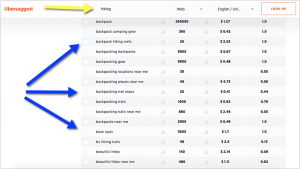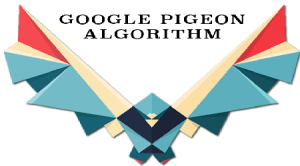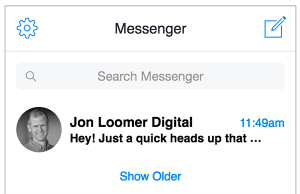By Anna Papalia
Everyone has a different approach to job interviews, and unfortunately, people don’t always represent themselves well. Some people downplay their strengths, some people lie, and others turn on the charm. The differences have nothing to do with their work history, their race, or their lack of morals—they have everything to do with their unique interview style.
Through my research, I discovered that there are four primary interview styles that people fall into. These can be most easily defined by their priorities in an interview.
• Charmers think, I want to be liked.
• Challengers think, I want to be me.
• Examiners think, I want to get it right.
• Harmonizers think, I want to adapt.
And, contrary to what many books or websites about interviewing say, there isn’t any one right way to interview. What’s more important is understanding who you are and how to present yourself in the most clear, confident, and authentic way.
For example, not everyone goes into an interview wanting to be liked. While on some level we all want to be liked, when it comes to interviews, making a good impression is more important than being liked. Each style’s approach to making a good impression is unique:
• Charmers show their value by being eager.
• Challengers show their value by questioning.
• Examiners show their value by being precise.
• Harmonizers show their value by being agreeable.
And this sets each style up for different experiences. Your interview style outlines not only who you are in an interview and how you come across, but also how you see interviews and what the experience is like for you.
• Charmers see an interview as a performance—it’s a stage and they are the star of the show.
• Challengers see an interview as a cross-examination, and they need to get their questions answered.
• Examiners see an interview as a test that will be graded as pass or fail.
• Harmonizers see an interview as a tryout for a team that they want to join.
Within these four primary styles, I’ve found that there are 12 variations caused by overlap between the styles. For example, if you are a Charmer, you can have tendencies of a Harmonizer or a Challenger, and these tendencies also affect the way that you approach an interview.
Your interview style doesn’t change depending on how prepared you are for an interview; it isn’t prescribed because of the type of job you have or your race or your gender—not all engineers interview the same way, just as not all African Americans interview the same way (and we have the data to prove it). Your interview style is like your personality. It is stable and predictable. But your personality is not set in stone either; it’s what you decide to do with the traits you are given. You can’t choose your interview style, the same way you can’t choose your personality, but you can shift your style to draw upon your strengths and perform better. Your interview style is your natural tendency; it is not your destiny. We all have all the styles within us, and when we know our baseline, or the style that we tend toward, we then can shift more authentically.

All styles are valuable
Here are two things I know to be true after coaching thousands of clients: Everyone gets better at interviewing; the more you do it, the better you get. I have never seen anyone get worse. And everyone is capable of interviewing better; no one is without room for growth.
When I embarked on this research, I hypothesized that there would be one interview style that was more successful. Year after year, I saw students and clients nail interviews, and I assumed we would discover the right way to interview.
But what I learned changed everything.
I looked back at years of interview notes and data on which students got the most internship offers and how that correlated to their interview styles, and there wasn’t a clear winner. Every style was represented. Our most successful students, the ones who got the most internship offers, the most full-time job offers after graduation, and those who felt most confident in interviews were represented by all four interview styles.
As I’ve already stated, an interview is just a set of questions about yourself, and those who know themselves well are more likely to do better in interviews. This self-awareness is the indicator of success, not your interview style.
And there isn’t one style that naturally has more self-awareness. There isn’t one style that is better or more successful in interviews as either hiring managers or job seekers. There isn’t one style that has a leg up or a natural advantage—those beliefs I’d held were my biases. I learned that we all assume our style is the best. Our biases are born in our preferences.
We all prefer to interview with others who share our interview style. We are the most comfortable and most secure when we interview someone who “speaks our language,” but our preferences are one of the biggest obstacles that get in our way. We can overlook great people.
Knowing your style can explain your bias, and an understanding of all four styles will help you interview better with everyone, not just those who have the same style as you.
How the interview assessment compares to other personality assessments
Though we focus strictly on how people perform in job interviews, clients tell us that their Interviewology Profile results often line up with those from other personality assessments, such as DISC, Myers-Briggs, and StrengthsFinder, to name a few. We like that clients feel they get similar results because it provides another level of validation for them, giving them further confidence in our assessment.
But because our test focuses on how you are in an interview, it could potentially change over time, unlike a Myers-Briggs, which is NOT based in science and operates under the assumption that your personality is fixed over the course of your life. We assess what you believe and how you behave today, which means that as you gain more interviewing experience, your results may change to reflect your new skills. The Interviewology Profile is perceptive enough to pick up on nuances and variations as you evolve.
This was true for one of my students, Priya, who took the interview style assessment as a freshman and learned she was an Examiner, which she felt was accurate. But when she returned as a sophomore and took it a second time, her results indicated she was a Charmer (the polar opposite style), so I asked her to see me after class, worried it was a mistake.
When I asked her about the change, she confided in me that though she had been an Examiner, interview experience and an internship had shown her how she wanted to act in professional settings. So her behavior had changed and so had her interview style. I was relieved and happy that she didn’t feel boxed into a particular style and that our results accurately reflected her growth.
What’s more, none of us are just one interview style; everyone is a blend of all four, and you prioritize your primary style. In practical terms, this means that sometimes you may be more of a Challenger than a Harmonizer because different people bring out different facets of your personality. And knowing your interview style will give you insight into your natural tendencies so that when you shift between these various facets, you do so authentically. I have learned that when you see yourself clearly, you know how to sell yourself well by appreciating your unique talents and what you can bring to the table.
Excerpted with permission from the book Interviewology by Anna Papalia. Copyright © 2024 by Anna Papalia. Reprinted courtesy of Harper Business, an imprint of HarperCollins Publishers.
Fast Company – work-life
(9)






